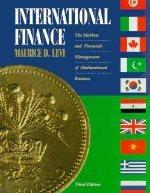15. In general, lifetime transfers of business interests are preferred to testamentary transfers unless a well crafted business buyout agreement is in place.
17. Arthur, Murray, and Strauss are equal owners of the AMS company, which in their most recent "value setting meeting" they agreed had a net value of $660,000. They each have a basis in their respective shares of $50,000. Their business buyout agreement requires them to use life insurance as part of a cross purchase plan. Each owner must have a policy equal to the amount necessary to pay 150% of the owner's potential obligation using the most recent value setting. Upon the death of a co-owner the business will be appraised and the survivors must purchase the decedent's interest (borrowing or finding other funds if the life insurance is insufficient).
The three common types of business buyout agreements, ranked in increasing order of the degree to which they can elevate the surviving owners adjusted basis is
| | cross purchase, entity-redemption, mixed |
| | entity-redemption, mixed, cross purchase |
| | entity-redemption, cross purchase, mixed |
| | mixed, entity-redemption, cross purchase |
| | cross purchase, mixed, entity-redemption |
18. When comparing trusts established by their parents for minors with parental gifts using the Uniform Gift to Minors Act (UGMA), which of the following are true?
(1)Gifts under UGMA must give the minor control by the age of 18. (2)If a parent dies while serving as custodian under UGMA, the gifts are included in the parent's taxable estate. (3)Gifts using trusts must give the minor control of the assets by the age of 21. (4)If a parent dies while serving as trustee with limited powers, the assets of the trust are included in the parent's taxable estate.
| | (2) and (4) only are correct. |
| | (1) and (3) only are correct. |
| | (1), (2), and (3) only are correct. |
19. For handling client incapacity, durable powers of attorney are frequently used in conjunction with a living trust.
20. Compared to a conservatorship, a durable power of attorney for property is
(1)subject to greater court supervision. (2)more flexible. (3)more public. (4)generally less expensive to create and administer.
| | (1), (2), and (3) only are correct. |
| | (1) and (3) only are correct. |
| | (2) and (4) only are correct. |






